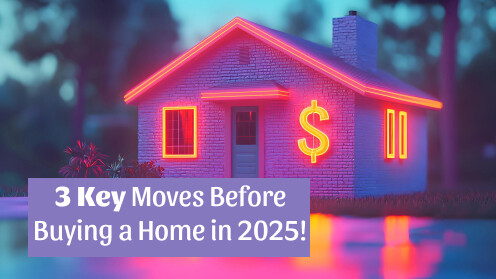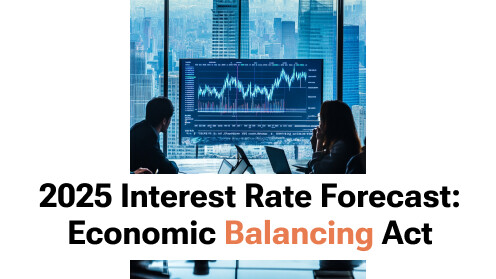3 Reasons Why We Are Not Heading Toward Another Housing Crash
With home prices softening, some are concerned that we may be headed toward the next housing crash. However, it is important to remember that today’s market is quite different than the bubble market of twelve years ago.
Here are three key metrics that will explain why:
- Home Prices
- Mortgage Standards
- Foreclosure Rates
HOME PRICES
A decade ago, home prices depreciated dramatically, losing about 29% of their value over a four-year period (2008-2011). Today, prices are not depreciating. The level of appreciation is just decelerating.
Home values are no longer appreciating annually at a rate of 6-7%. However, they have still increased by more than 4% over the last year. Of the 100 experts reached for the latest Home Price Expectation Survey, 94 said home values would continue to appreciate through 2019. It will just occur at a lower rate.
MORTGAGE STANDARDS
Many are concerned that lending institutions are again easing standards to a level that helped create the last housing bubble. However, there is proof that today’s standards are nowhere near as lenient as they were leading up to the crash.
The Urban Institute’s Housing Finance Policy Center issues a quarterly index which,
“…measures the percentage of home purchase loans that are likely to default—that is, go unpaid for more than 90 days past their due date. A lower HCAI indicates that lenders are unwilling to tolerate defaults and are imposing tighter lending standards, making it harder to get a loan. A higher HCAI indicates that lenders are willing to tolerate defaults and are taking more risks, making it easier to get a loan.”
Last month, their January Housing Credit Availability Index revealed:
“Significant space remains to safely expand the credit box. If the current default risk was doubled across all channels, risk would still be well within the pre-crisis standard of 12.5 percent from 2001 to 2003 for the whole mortgage market.”
FORECLOSURE INVENTORY
Within the last decade, distressed properties (foreclosures and short sales) made up 35% of all home sales. The Mortgage Bankers’ Association revealed just last week that:
“The percentage of loans in the foreclosure process at the end of the fourth quarter was 0.95 percent…This was the lowest foreclosure inventory rate since the first quarter of 1996.”
Bottom Line
After using these three key housing metrics to compare today’s market to that of the last decade, we can see that the two markets are nothing alike.
3 Reasons Why We Are Not Heading Toward Another Housing Crash

With home prices softening, some are concerned that we may be headed toward the next housing crash. However, it is important to remember that today’s market is quite different than the bubble market of twelve years ago.
Here are three key metrics that will explain why:
- Home Prices
- Mortgage Standards
- Foreclosure Rates
HOME PRICES
A decade ago, home prices depreciated dramatically, losing about 29% of their value over a four-year period (2008-2011). Today, prices are not depreciating. The level of appreciation is just decelerating.
Home values are no longer appreciating annually at a rate of 6-7%. However, they have still increased by more than 4% over the last year. Of the 100 experts reached for the latest Home Price Expectation Survey, 94 said home values would continue to appreciate through 2019. It will just occur at a lower rate.
MORTGAGE STANDARDS
Many are concerned that lending institutions are again easing standards to a level that helped create the last housing bubble. However, there is proof that today’s standards are nowhere near as lenient as they were leading up to the crash.
The Urban Institute’s Housing Finance Policy Center issues a quarterly index which,
“…measures the percentage of home purchase loans that are likely to default—that is, go unpaid for more than 90 days past their due date. A lower HCAI indicates that lenders are unwilling to tolerate defaults and are imposing tighter lending standards, making it harder to get a loan. A higher HCAI indicates that lenders are willing to tolerate defaults and are taking more risks, making it easier to get a loan.”
Last month, their January Housing Credit Availability Index revealed:
“Significant space remains to safely expand the credit box. If the current default risk was doubled across all channels, risk would still be well within the pre-crisis standard of 12.5 percent from 2001 to 2003 for the whole mortgage market.”
FORECLOSURE INVENTORY
Within the last decade, distressed properties (foreclosures and short sales) made up 35% of all home sales. The Mortgage Bankers’ Association revealed just last week that:
“The percentage of loans in the foreclosure process at the end of the fourth quarter was 0.95 percent…This was the lowest foreclosure inventory rate since the first quarter of 1996.”
Bottom Line
After using these three key housing metrics to compare today’s market to that of the last decade, we can see that the two markets are nothing alike.

Buying a Home in 2025? Do 3 Things ASAP!
Mortgage rates are expected to fall in 2025, easing the path to homeownership. As rates drop, more homeowners may sell, boosting real estate inventory and market opportunities.
What is ‘missing middle’ housing, and could it solve Utah’s housing crisis?
Since 2015, 87% of building permits in Utah have been for single-family homes, but experts suggest focusing on "missing middle housing" like duplexes and triplexes to address affordability. Daniel Parolek, who coined the term, emphasizes that these smaller,...

5 Reasons to Buy in 2025
Reduced demand could lead to stagnant or declining prices, creating better deals for new buyers. Buyers prepared with savings and good credit can benefit from hesitant competition.
What’s The Most Expensive Zip Code In Southern Utah?
A unique perspective on the current housing market highlights the challenges of home buying, especially in Utah, where prices have surged. A recent analysis of 184 ZIP codes revealed Park City (84060) as the most expensive, with a median home value of over $2.047...

Capital Economics 2025 Home Price Forecast
Capital Economics forecasts U.S. home prices will ↑ 4.0% in both 2025 and 2026, signaling a stable housing market.Limited inventory will likely prevent price declines, supporting steady growth despite constrained buyer demand.

Will 2025 Finally Be a Normal Housing Market?
New listings ↑ 8% weekly, signaling more seller activity as the market heads into 2025. Pending home sales ↑ 10% yearly, reflecting slight optimism in the housing market.

Happy Lunar New Year
恭喜發財. Wishing you prosperity. Lunar New Year, is the most important celebration observed in China, with cultural and historic significance.The New Year celebration is centered around removing the bad and the old, and welcoming the new and the good. Traditional...
California wildfires could have ‘domino effect’ on Utah’s home insurance market
Insurance companies like State Farm and Allstate have halted new home-insurance policies in California due to rising wildfire risks, with the state experiencing eight of the ten costliest wildfires in the U.S. Insurers are now using advanced wildfire mapping tools to...

2025 Interest Rate Forecast: Economic Balancing Act
Rates to drop from 4.5% (Q1) to 3.9% (Q4), following gradual rate cuts across four quarters. Rate cuts aim to boost borrowing and economic activity while addressing inflation concerns.
Salt Lake County, central Utah receive federal funding to make homes safer
Salt Lake County and six central Utah counties will receive nearly 50% of the $6.8 million allocated for home safety improvements in the Mountain West region. The funds, awarded by the U.S. Department of Housing and Urban Development, aim to address health hazards in...
